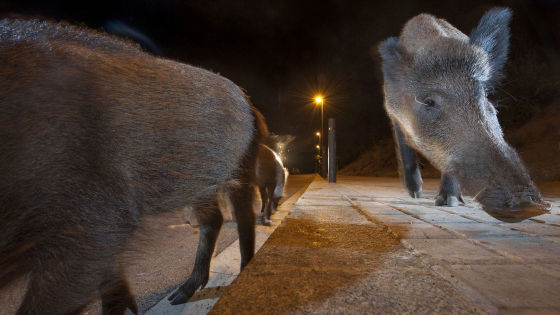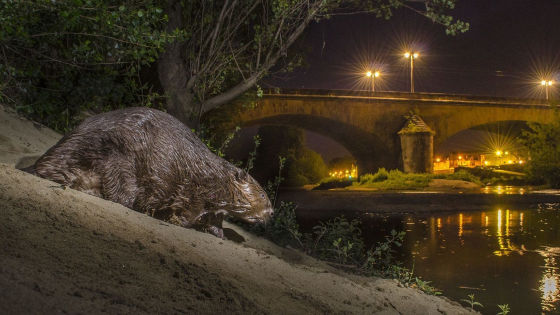Wild animals are becoming more nocturnal due to human beings

There are also studies that the life of wildlife is often threatened by the increase of human activity area and human influence is spreading in 75% of the world's land. As human beings expand their living areas, many mammals have found that the tendency of "nocturnality" is strengthening, and there is also concern about the impact on ecosystems.
Animals feel safer from humans in the dark | Science
http://science.sciencemag.org/content/360/6394/1185
All around the world, humans are forcing other mammals to be more active at night
http://www.latimes.com/science/sciencenow/la-sci-sn-mammals-active-at-night-20180614-story.html
In recent years, advances in technology such as satellite, GPS telemetry, camera tracking and so on have made it possible to track wildlife behavior. Numerous studies have been published showing that changes in behavior of wild animals are taking advantage of these technologies.
Mr. Caitlin Gainor of the University of California, Berkeley met with a meta-analysis on 76 studies on 62 species of animals on 6 continents in order to investigate what changes are occurring in wildlife behavior to avoid humans The we. Gainer's research team is analyzing relatively large mammals. We are analyzing large animals because it is highly susceptible to humans and is susceptible to human life. It is the same reason that many of the studies done by behavior tracking so far covered larger mammals.

As a result of the analysis, it was found that animals who lived in areas where human activity was active increased the activity amount at night at 1.36 times. In a more specific example, the percentage of animals whose activity time at night increased by 50% was 68% higher. It is thought that the activity time is shifting on the night when it is difficult to find wild animals because the probability of encountering humans increases and the risk of disinfection increases.
However, it is concerned that the ecological system may be adversely affected in a wide range against the situation where the tendency of the nocturnal nature of wild animals is rising. Activities of certain animals at night help to increase the overlap between nocturnal animals and behavioral time and there is concern that competition will increase if the predators to feed on are of the same type. In addition, it is pointed out that the possibility of unnecessary proliferation is not suppressed if the activities of the animals of the animals that have shifted to the nocturnal nature become free during the daytime activities.
Also, as large mammals become more active at night, small animals that were active at night without predators could change activity times during the day seeking niches, stress levels increased and reproductive activities It is pointed out that the balance of ecosystems will collapse, such as whether there is an influence on the ecosystem.

However, at this time it is unknown whether the rising tendency of wildlife's nocturnal nature will stay at temporary level of behavior, or whether influence will become greater and will lead to permanent change of ecology. In order to prevent the balance of the ecosystem from collapsing, the necessity to expand the "protected area" that gives safety to animals spatially to the future in the future is also being debated.
Related Posts:







